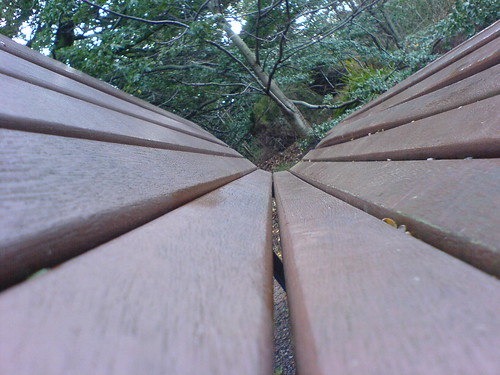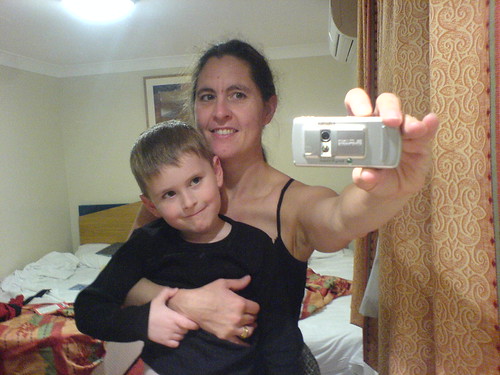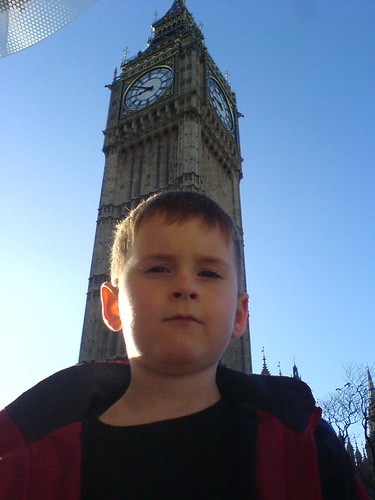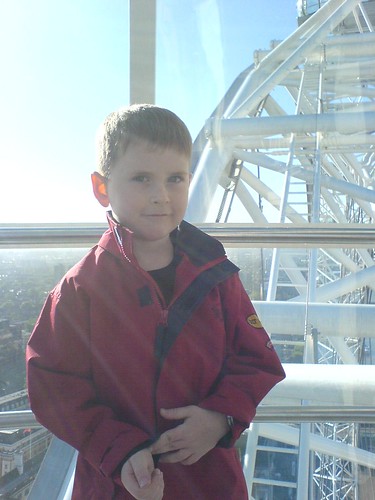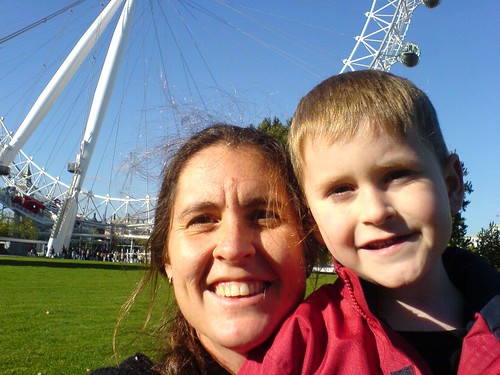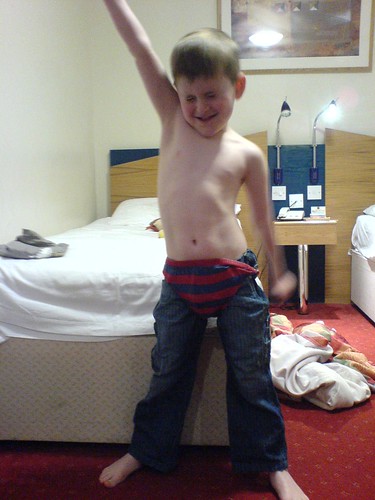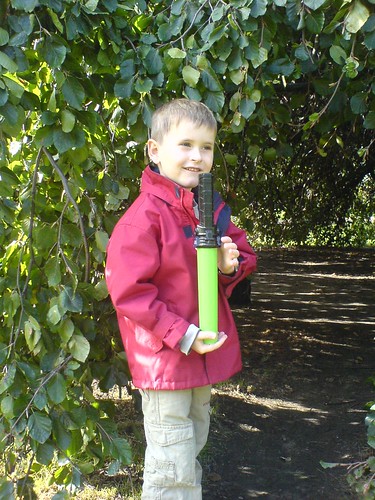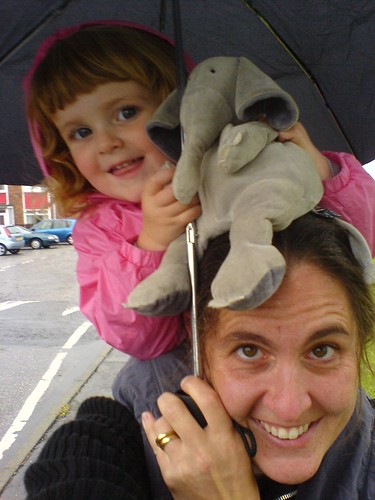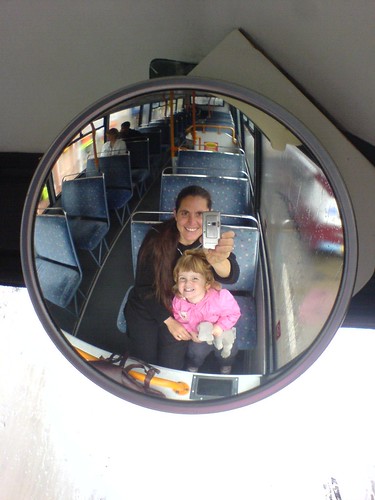As noted previously, I have been writing rather a lot of sonnets lately. I can name 27 that I’ve written since I started in October, though if I shake my archives out I may find another one or two lurking.
Why did you start? Why are you doing this?
On September 25, 2006, science fiction and fantasy author John “Mike” Ford was found dead in his house. Although I didn’t know him personally, he was a frequent commenter on a website that I read. He was particularly prone to extemporaneous sonnets, a trait which amused and amazed us all.
I used to write sonnets, years ago, but I stopped sometime after university. I certainly wasn’t of a calibre to match John Ford’s work. But when he died, I realised that I would like to become good at them, and that the only way to do so was to start writing them.
I look at it this way: one day, the inspiration and motivation to write the perfect sonnet may strike. But if I haven’t the skills and experience, the thing won’t get written.
So now I write sonnets. Since they’re for practice, I write them on whatever topics come to mind. I’ve even written one on my organisation’s new system for the recording of project risks. I’ve been described as an “occasional” poet, in the sense that I write for a given occasion rather than writing in the abstract. I often think of my occasional sonnets as “speed sonnets”, because, since I’m writing them for discussions that move on while I compose, I have to write fast. My record is 13 minutes, but most of mine take over half an hour.
I am doing some non-occasional work, however. I’m sending three narrative sonnets off to a science fiction magazine to see if they’re saleable. Each of them is essentially a 14-line short story, and took some 3 or 4 hours to work through.
So what, in your terms, is a sonnet?
Definitions of the sonnet vary more than I originally thought. For me, a sonnet has fourteen lines, divided into an eight-line octave and a six-line sestet. The octave, made up of two quatrains, tends to pose a problem or set up a situation, which the sestet then resolves. The sestet generally uses the first four lines to walk thorough the resolution, followed by a two-line couplet that sums the entire situation up.
(The problem/solution or situation/twist division between the octave and the sestet is not something I follow all the time. But it’s a useful way to structure the poem.)
I use very traditional rhyming patterns, either:
ababcdcd efefgg, or
abbacddc effegg
I know sonnetrists who use efgefg for their sestets, but I do enjoy finishing a sonnet off in a couplet, so I don’t tend to.
My favourite sonnet is by Shakespeare, but it’s not one of his stand-alone verses. It’s actually embedded in Romeo and Juliet – the couple’s first words to one another. It ends with a kiss.
[R]If I profane with my unworthiest hand
This holy shrine, the gentle fine is this:
My lips, two blushing pilgrims, ready stand
To smooth that rough touch with a tender kiss.
[J]Good pilgrim, you do wrong your hand too much,
Which mannerly devotion shows in this;
For saints have hands that pilgrims’ hands do touch,
And palm to palm is holy palmers’ kiss.
[R]Have not saints lips, and holy palmers too?
[J]Ay, pilgrim, lips that they must use in prayer.
[R]O, then, dear saint, let lips do what hands do;
They pray, grant thou, lest faith turn to despair.
[J]Saints do not move, though grant for prayers’ sake.
[R]Then move not, while my prayer’s effect I take.
How hard is the rhyming?
Not as difficult as one would think. The important thing is not to sound surprised when you find yourself at the end of the second line in a rhymed pair, suddenly reaching for some bizarre word to match your sounds up. (This can be funny, used correctly, but after a while it just sounds amateurish). This means planning ahead, and having some idea of the areas you’re going to cover. It also means having some alternative phrasings up your sleeve, if you simply can’t wind up at the right sound at the right time.
The important thing is that it has to sound natural. The writer must be the master of the language. A reader that senses that the language is pushing the writer around, dictating the content of the poem will lose trust in the narrative voice.
I’m averse to false rhymes and near rhymes, but I do cheat a bit on accents. There are words that rhyme neatly in one of my dialects, or in extreme cases, my idiolect, and I’ll happily pair them up. Like the following sonnet, which manages to rhyme “on” and “shone” (I sometimes pronounce it to rhyme with “Shawn”).
The day the Scotland processor came on,
The land itself was darkened from the drain
Till, windmills spinning, taking up the strain,
The nation-chip began. Control lights shone.
The code we’d woven deep into the land
The bits and bytes in heather, pine and stone,
In cities, towns and crofts, then spread, unknown,
Delivering the Web into our hand.
At Mercat Cross they read the proclamation:
We hold the world. It’s time to take control.
We argued then, for Scotland isn’t whole.
Whit? Rule the world? We cannae run the nation!
The wisest knew the row would never halt,
And sitting back, enjoyed their single malt.
(Context note: this came out of a conversation about how Scotland could take over the world, combined with my memory of a line from a James Crawford poem about Scotland as a “boundless chip of a nation”. I’m rather fond of it, though it’s one of the ones where I used feminine endings – see below – on the ninth and twelfth lines.)
What about meter?
I write almost exclusively in iambic pentameter (the link is a very good article, but if you want to skip it, just remember that an iamb goes daDUM and that pentameter means you use five of them in a line). I’m very fussy about this. I’ll occasionally use a “feminine” ending, with an additional unstressed syllable at the end of a line, but only in rhymed pairs.
Most good sonnet writers are less timid about varying their meter, cheerfully swapping spondees trochees (DAdum) for iambs and using unmatched feminine endings. But, just as I used to train with a men’s shot put to make it easier when I competed with the lighter women’s one, I’m taking a strict approach to meter just now. The meter is the engine that moves a sonnet; its pace walks the reader through the meaning. Too loose an approach to meter leaves the reader stumbling, rushing here and lost there.
A few small rules, while talking meter:
- Iambic pentameter is really just a habit of thought, and of speech. Once you get the “ear” for it, you can write it with surprisingly little effort.
- When we all wrote sonnets in high school, my best friend pointed out that you can’t start a line with a gerund (“building”), because they’re pretty much all
spondees trochees. This was a great rule of thumb, but it falls down with two-syllable verbs (“constructing”).
- You can use a dactyl (DAdumdum) by sticking an unstressed syllable after it; most dactylic words have a secondary stress on the final syllable. You cannot use a double dactyl in strict iambic pentameter, as I found out when trying to get “paleontologist” into one poem. It just sounds wrong.
- Try saying your lines aloud, without tapping out the meter. You’d be amazed where the natural stresses fall in groups of one syllable words, and at how bad a poem that tries to ignore that can sound.
The thing about meter is that it matters to spoken language as well. We have words that differ only in their stresses, which can really make a sonnet work – but only if the reader trusts the meter. This one, about paid shills on blogs, uses that in the last line, drawing a distinction between “conTENT” (happy) and “CONtent” (what’s inside).
Oh, what a tangled Internet they weave
Who want to pay for shills to viral-post.
Thus do they practice, seeking to decieve,
Dilution of the thing they value most.
I mean our trust, because if this thing spreads
We’ll read with extra care — and question more —
Their zombie-filled and advert-bloated threads
Until we learn which posters to ignore.
Whoever dreamt this folly clearly knows
The cost of every word, the worth of none.
They pay a listed price for posting prose,
But not for verse, and no one’s paid to pun.
I challenge you: illumine what we see.
Be not content to simply content be.
Speaking of content…
Content in verse is a lot like content in prose. Sometimes I have something to say, and sometimes I just want to burble. I’ve done both in fourteen line stretches, and I don’t know which I enjoy more. I’ve rewritten prose comments on threads to turn them into sonnets, I’ve written over the top laudatory verse, I’ve written cautionary poetry about war and drawn analogies between September 11 and Guy Fawkes. I’ll post more of them over the next few days, if anyone is interested (or, frankly, even if they’re not).
What content I have, I tend to organise before I start writing. I don’t so much outline my sonnets as budget them, deciding I’ll spend a line on this bit and two on that. I may not stick to the budget, but it keeps me moving through the things I want to say.
The thing with content is this: I am never certain that I have anything, in the abstract, worth proclaiming to the world. This is why I like to write to suit the occasion, in a context that I don’t frame. Even so, I am increasingly conscious that my words have more weight because of the rhyme and meter. I try not to think about that too much.
And what is left to work on?
Apart, of course, from mastering all of the above, there are a number of areas I’d like to improve.
First off, there’s a lot more in the sound of language than simple rhyme. I tend to be slightly dead to the ways that I can use the sounds of words to set the tone of a line, or of the poem as a whole.
I am also conscious of the number of sonnet traditions I haven’t touched on – Spenserian, Oneidin, etc, etc. I need a wider grounding in them so that I can consciously reference different antecedents.
I enjoy referencing other forms of verse in my sonnets – I’ve echoed (and rewritten) both Eliot and Frost in sonnets, but there are some skills in that that I should like to master. Rewrites that change the rhyme structure, I find, sound wrong, while those that merely muck with the meter still work. There’s more subtlety in there.
Speaking of subtlety, I find that there’s a hierarchy within the stresses in connected English prose – not all stressed syllables are created equal. I’d like to work with that consciously, sometime, maybe by creating a pattern in the secondary stresses.
I have some funky structural ideas I want to play with, such as a linked sonnet, where the sestet of the first sonnet is most of the octave of a second, which then has its own sestet, etc. I think that would be fun. I’d also love to do a backward sonnet, preferably about time travel.
So, to sum up?
I’m enjoying writing these things, but for goodness’ sake, don’t take them too seriously. I am but an apprentice.

